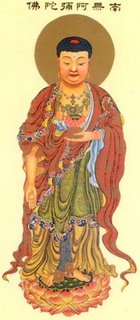The Scent of a Flower (The Author Co^ ly`nn)
The Scent of a Flower (The Author Co^ ly`nn)
The Scent of a Flower
Hương của một loài Hoa
Often we pass by the flowers that bloom
Chúng ta thường đi qua những bông Hoa nở đầy
Around us without a second thought.
Xung quanh chúng ta mà chúng ta không nghĩ tới
Sometimes, however, these flowers assert
Tuy nhiên, những bông hoa này tự khẳng định chính mình
Themselves, intruding on our inattentiveness
Đâu buộc chúng ta phải ân cần
With their sweet scent.
Với hương thơm ngào ngạt
Whether the smell is good or offensive,
Có phải chăng khứu giác thích hoặc không
A person also gives off a scent derived of his
Một người từ chối hương của chính mình
Or her individual character.
Hay đặc tính của chính mình
To live like a flower, communicating with its
Hãy sống như một bông hoa, giao tiếp với
Hushed fragrance, never needing unnecessary
Hương yên lặng, không cần những từ không cần thiết
Words or clamorous noise; what could be
Hay Quảng cáo ồn ào, điều gì tuyệt vời hơn???
More wonderful?
The Author Co^ ly`nn
( ngươ`i dịch Thiện Mỹ) nếu không hợp ý Tác giả, xin cho ý kiến
1/http://niemphatthanhphat.blogspot.com
2/ http://nammoadidaphat.blogspot.com
3/ http://namoamitabhabuddhatheky21.blogspot.com
4/ http://internationalpurelandbuddhism.blogspot.com/
5/ http://phapmonniemphat.blogspot.com/
SAO GỌI LÀ TIỂU THỪA: TIỂU THỪA LÀ CÁI TÂM KHÔNG LỚN

SAO GỌI LÀ TIỂU THỪA: TIỂU THỪA LÀ CÁI TÂM KHÔNG LỚN
“The Faith on the Mahāyāna to be the great cause which can destroy the four kinds of hinderances; and at the same time he (ASAṄGA OR VASUBANDHU) stated that the “calumniation” of Mahāyāna is one of great hinderance”.
“And when the latter lineage of the Mahasanghikas established the Mahāyāna Buddhism or the Mahāyāna schools then the Sthaviras began to “calumniate” the Mahāyāna Buddhism . And they were called by the Mahāyāna as ‘Srāvakayāna’ or ‘Hīnayāna’. Therefore, their hatred upon the Mahāyāna Buddhisṃ. As the Mahāyānists became more and more strong so they began to call the Mahāyāna Buddhism by such terms as “Naivedaṁ Mahāyānaṁ Buddha Vacanaṁ” (i.e., the Mahāyāna doctrines are not true doctrine of Buddha). Of course, the struggle between the Mahāyānists and the Hīnayānists existed undoubtedly long before the time of Asaṅga and Vasubandhu, but it became a burning question at the time of Asaṅga and Vasubandhu and downwards.
“TRÍCH TRONG CUỐN “A HISTORICAL STUDY OF THE TERMS HĪNAYĀNA AND MAHĀYĀNA AND THE ORIGIN OF MAHĀYĀNA BUDDHISM, BY RYUKAN KIMURA, (PAGE 180). được tìm thấy bởi Thích Thiện Mỹ”
2/ http://nammoadidaphat.blogspot.com
3/ http://namoamitabhabuddhatheky21.blogspot.com
4/ http://internationalpurelandbuddhism.blogspot.com/
5/ http://phapmonniemphat.blogspot.com/

0 Comments:
Post a Comment
<< Home